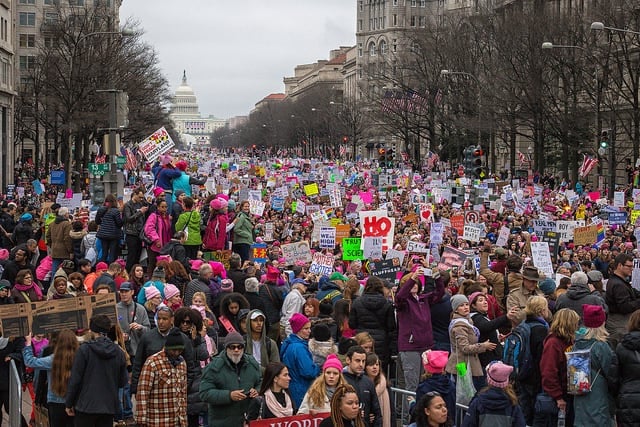A few years ago I found myself in an airport terminal with time to spare before boarding my flight. Ambling among the gates, I stopped to peruse a shelf of paperbacks until The Opposite of Loneliness by Marina Keegan caught my eye. Keegan delivered an address by the same name at her graduation from Yale in 2012; she died tragically five days later in a car crash. I stood there in Hudson News and read something from Keegan’s title essay that has remained with me: “We don’t have a word for the opposite of loneliness, but if we did, I could say that’s what I want in life… It’s not quite love and it’s not quite community; it’s just this feeling that there are people, an abundance of people, who are in this together. Who are on your team.” Tears welled up in my eyes as I flipped through the collection of essays, moved for this young woman, her insight, her honesty, her death. I returned the book to the shelf of paperbacks and headed to my gate. I was traveling alone, but I felt less lonely for having encountered Marina Keegan.
On Saturday, millions of people around the globe joined in the Women’s March in Washington D.C. and its sister marches.1 The march of more than 60,000 that I attended in Atlanta was among the most joyful events I can recall.2 From the packed train cars on the way to the march to the packed train cars home, a spirit of gentleness, strength, and fierce beauty abounded. Women and men high-fived and hugged police officers, who high-fived and hugged back. Wheelchairs and baby carriages were pushed with care and deference, marchers laughed and smiled easily between unwavering calls for justice and equality across our society.
Without question, the inauguration of Donald Trump as president was the catalyst for these marches. The marches, though, surpassed opposition to a leader, or a policy, or a political party. These marches may have started with people standing together against something, but they became about standing together. Period. Millions of us experienced the opposite of loneliness last Saturday. It was communion – a sudden awareness of living in a web of relationships of solidarity and care – and it gave birth to hope. Whenever we feel the opposite of loneliness, we are given the chance to hope.
Everyone needs this communion. Its alternative is isolation, and in isolation there is only despair. We isolate ourselves in many ways: through the wrongs that we commit and the wrongs that we don’t speak out against. Through belief that we have been abandoned by God and by those around us. By failing to see that we are capable of relationships, that the world needs us, our gifts, and our participation in the whole web of things. Perhaps especially, we isolate ourselves through our own uncompromising rigidity.
As a person unreasonably privileged by our society, I can almost always opt into things or stand back in judgment of them without fear of personal consequence. Sadly, I exercise the option of judgment all the time. Unless I know that the march will turn out a certain way, I won’t attend. Unless I agree with everything it’s about, I conscientiously object. If I don’t totally understand or control my surroundings, I take my proverbial toys and go home. I’ve done it countless times.
And yet the invitation remains – even for the privileged like me – not to be alone. To choose hope. To move boldly from the dry sand of isolation into the waters of communion. On Saturday I found out, as millions of others did, that the water is fine. In fact, rather than losing ourselves in this ocean of communion, we found ourselves in hope.
Marina Keegan put her finger on the thing that each of us needs, wise well beyond her 22 years. The opposite of loneliness is communion and it’s what I want in life, too. I don’t just want it for myself; when I taste this communion, I want to invite other people in. I don’t want to harbor hate, or prejudice, or judgment anymore. I don’t want to hold unreasonable power at the expense of those who welcomed me to march alongside them on Saturday, and those who have been marching for generations. And so I will continue to act, and I will invite others to do the same.
I had my deepest hope confirmed this weekend. None of us has to be alone. Women all around the globe, throngs of beautifully diverse people of every race, gender, sexual orientation, and religion – richly human people – were saying the same thing to one another, including the people to whom society gives power, like me: let go of judgment, hate, exclusion, isolation and despair. Grab a sign and jump in. It’s not just the right thing to do – it’s the only thing there is. Believe me: the water’s fine.
***
Cover image courtesy FlickrCC user mobili, found here.
- As recent days have shown, determining attendance can be both tricky and controversial. Women’s March organizers estimate that in addition to the march in D.C., 673 sister marches took place around the globe with as many as 4.8 million in attendance. Totals from local news outlets reporting in their own cities suggest 3 million as an estimate. See https://www.womensmarch.com/sisters for organizers’ counts, and other estimates of attendance such as the following: https://www.bustle.com/p/how-many-people-attended-womens-marches-in-america-dc-was-in-good-company-32128. ↩
- http://www.11alive.com/news/politics/60000-plus-jam-downtown-atlanta-for-womens-march/389625626 ↩


